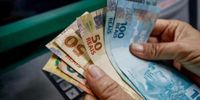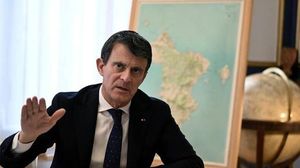On Thursday, April 3, 2025, President Luiz Inácio Lula da Silva signed a significant decree to anticipate the 13th salary payment for retirees and pensioners of the Instituto Nacional do Seguro Social (INSS). This move, which echoes similar actions in previous years, will see the first installment paid in April 2025, followed by the second installment in May 2025. The announcement was made during the ceremony titled 'O Brasil dando a volta por cima,' which celebrated the achievements of Lula's government over the past two years.
During the event held at the Ulysses Guimarães Convention Center in Brasília, Lula highlighted several key initiatives aimed at improving the lives of Brazilians. Among these was the allocation of R$ 18 billion from pre-salt oil exploration to the Minha Casa, Minha Vida housing program, designed to provide affordable housing for low-income families. This funding is part of a broader effort to tackle poverty and enhance living conditions across the nation.
According to government estimates, approximately 34.2 million retirees and pensioners will benefit from the anticipated 13th salary payment. However, it's important to note that this payment excludes recipients of the Benefício de Prestação Continuada (BPC), as current legislation does not provide for a 13th salary for those benefits.
"We are committed to ensuring that all Brazilians, especially our retirees, receive the support they need to live with dignity," Lula stated during his speech. He emphasized the government's dedication to economic recovery and social welfare, noting the positive strides made in reducing hunger and poverty.
In addition to the 13th salary announcement, Lula discussed the government's broader economic achievements, which include a GDP growth of 3.2% in 2023 and 3.4% in 2024. He pointed out that Brazil has returned to the ranks of the world's ten largest economies, growing at twice the rate of the average recorded between 2019 and 2022.
The unemployment rate has also seen a significant decline, reaching 6.6% in 2024, the lowest in 12 years. This improvement comes after the unemployment rate peaked at 14.9% in 2021. Since 2023, more than 3.2 million formal jobs have been created, contributing to a more stable economic environment.
Internationally, Lula has engaged with leaders from 67 countries, resulting in the opening of over 340 new markets for Brazilian agribusiness products. Brazil is set to host important global events in 2025, including the BRICS Summit and the 30th United Nations Climate Change Conference (COP30), while also assuming the presidency of Mercosur.
Food security has been a major focus of Lula's administration, with severe food insecurity reportedly decreasing by 85% in Brazil in 2023. This translates to 14.7 million people no longer experiencing hunger, a notable achievement for the government. The Bolsa Família program continues to support over 20 million families each month, providing a minimum transfer of R$ 600.
Healthcare initiatives have also expanded under Lula's leadership. The Mais Médicos program has doubled the number of healthcare professionals, reaching over 26,000 practitioners across 4,500 municipalities. Furthermore, the Farmácia Popular program now offers 41 medications free of charge, improving access to essential health services for many Brazilians.
In terms of education, the government has implemented programs like Pé-de-Meia, which provides financial incentives to keep high school students in school, and has announced the creation of ten new university campuses and 102 new federal educational institutes.
Additionally, the Novo PAC, a federal initiative aimed at accelerating growth, encompasses over 20,000 projects and investments exceeding R$ 1.8 trillion. The Minha Casa, Minha Vida program has also been modernized, resulting in the contracting of over 1.2 million homes in just two years.
On the environmental front, the government has made strides in reducing deforestation rates in the Amazon, achieving the lowest rate in a decade with a 46% reduction compared to 2022. This commitment to sustainability is complemented by significant investments in the cultural sector, amounting to R$ 6.86 billion through initiatives like the Lei Paulo Gustavo and the Política Nacional Aldir Blanc.
As Brazil continues to recover and grow, the anticipation of the 13th salary payment serves as a reminder of the government's efforts to support its citizens during challenging times. The financial boost provided by this payment is expected to help many families manage their expenses and stimulate economic activity.
In conclusion, Lula's administration is focused on not just economic recovery, but also on enhancing the quality of life for all Brazilians. With initiatives aimed at job creation, poverty reduction, and social welfare, the government is working to build a more inclusive and prosperous future for the nation.








